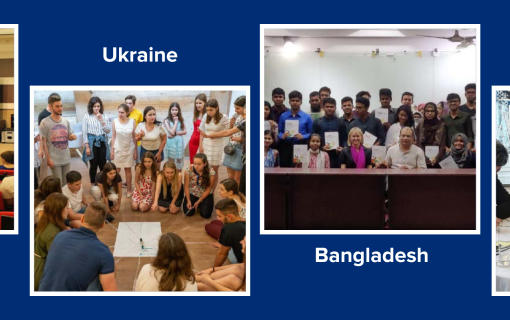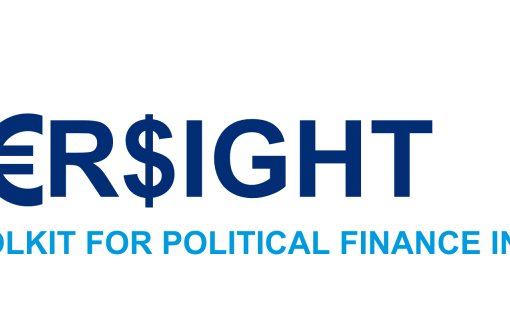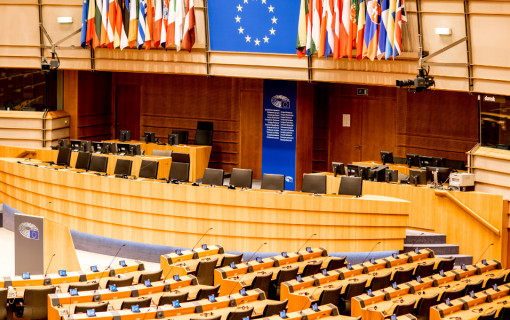Evaluation of IFES Civic Education Programs in Kazakhstan, Kyrgyz Republic and Tajikistan
EXECUTIVE SUMMARY
Beginning in 2000, the primary focus of the USAID-funded Central Asia activities of the International Foundation for Election Systems (IFES) shifted away from the organization’s traditional mission of political party development and election reform to civic education. Today, IFES has an active civic education program in the Central Asian republics of Kazakhstan, Kyrgyzstan, and Tajikistan. The program consists of seven activities--almost all of them directed at high school students--with four of the activities operational in all three countries. The four basic activities consist of a civic education textbook for use in a high school civics course, democracy summer camps in which students learn to apply the principles of democracy in a practical way, Student Action Committees (SACs) formed for the purpose of addressing school and community problems through a democratic process, and Student Local Government Days (SLGDs) in which students “shadow” a local government official for a day. The three other activities, each operational in one or two of the country programs, consist of a national Civic Education Tournament, a university and adult civic education program, and the maintenance of a Central Asia Democracy Website.
The Cooperative Agreement between USAID and IFES to conduct the Central Asia program is scheduled to expire on September 30, 2003. The purpose of this consultancy was to conduct an evaluation of the IFES-Central Asia (IFES-CAR) civic education program to assist USAID in the decision that it must make on whether the Cooperative Agreement should be extended. The two-person team assigned to make this evaluation examined the program over a five-week period, with the first week spent in Washington, DC, one week spent in each of the three countries in the IFES-CAR program, and the final week in on-site compilation of data and preparation of a final report. During the country visits to Kazakhstan, Kyrgyzstan and Tajikistan, each component of each program activity in that country was closely analyzed and, in most instances, observed in action. Extensive interviews were also conducted with teachers, students, government officials, donor-partners, NGO leaders, and parents.
It is the conclusion of the evaluation team from interviews, activity site visits, classroom observations, and document examination that the IFES-CAR civic education program is making a significant and meaningful contribution to the construction of strong foundations on which Kazakhstan, Kyrgyzstan and Tajikistan can build true and sustainable democratic systems. The program has been, and is, highly successful in increasing understanding of the principles of democracy and in encouraging and creating activism in civil society among students who participate in its various activities. There is every reason to believe that continued success can be anticipated, probably on an incrementally greater basis, if the USAID-IFES Cooperative Agreement is extended.
In each of the countries involved in the IFES-CAR program, the young people participating in its activities demonstrate that they are not just grasping the basic principles of democracy, but actively putting those principles to work to help those in need in their schools and communities. Many of the things they are accomplishing are quite extraordinary. Sitting on the threshold of adulthood, these young people exhibit a powerful determination to improve their countries. They are striving to build real democratic political systems, eradicate corruption, improve the quality of education, ease the burdens of the needy, and eliminate gender inequality.
Given the success that IFES appears to have achieved--and that it gives every appearance of continuing to achieve--with its Central Asian Republic civic education program, none of the recommendations that are offered in this report call for the elimination or curtailment of an activity. Where change is recommended, it is either for a revision in the manner in which an activity is conducted or administered or for the enlargement or expansion of an activity. Nevertheless, the reality of the constant competition for USAID’s limited funds and resources makes it is impossible to ignore the possibility that other priorities may, at some point in the future, force a reduction in the size of the IFES program. It is extremely difficult to prioritize among seven program activities when each appears to be so successful in achieving its goals, and it would be hoped that this matter would not have to be addressed before such time as the local ownership and sustainability of each activity has been established to the complete satisfaction of USAID and IFES.
If a situation should develop where it becomes necessary to prioritize among the seven activities of the IFES-CAR program, the civic education textbook and the IFES civics course in which it is used must be considered as the program’s core activity, and the one with the greatest potential for significant long-term impact. The Student Action Committee program, which is intended to translate the lessons of the textbook into community action, should rank second. Beyond these two activities, the summer camp program would be the only one that could produce significant savings. But the summer camp program has been extremely popular and is seen as a highly effective motivational and training activity by every past participant interviewed during this evaluation. It is very hard, therefore, to









